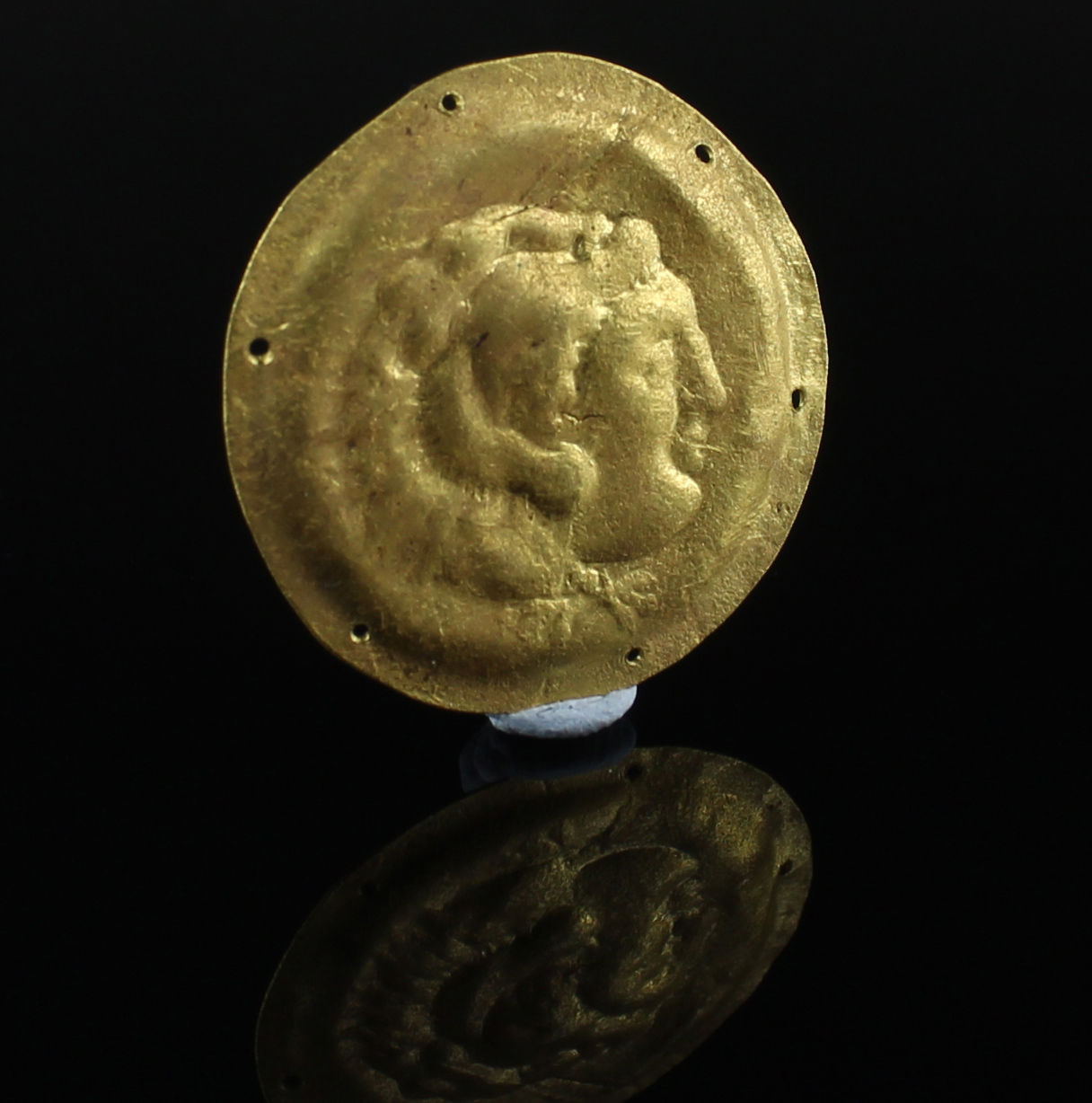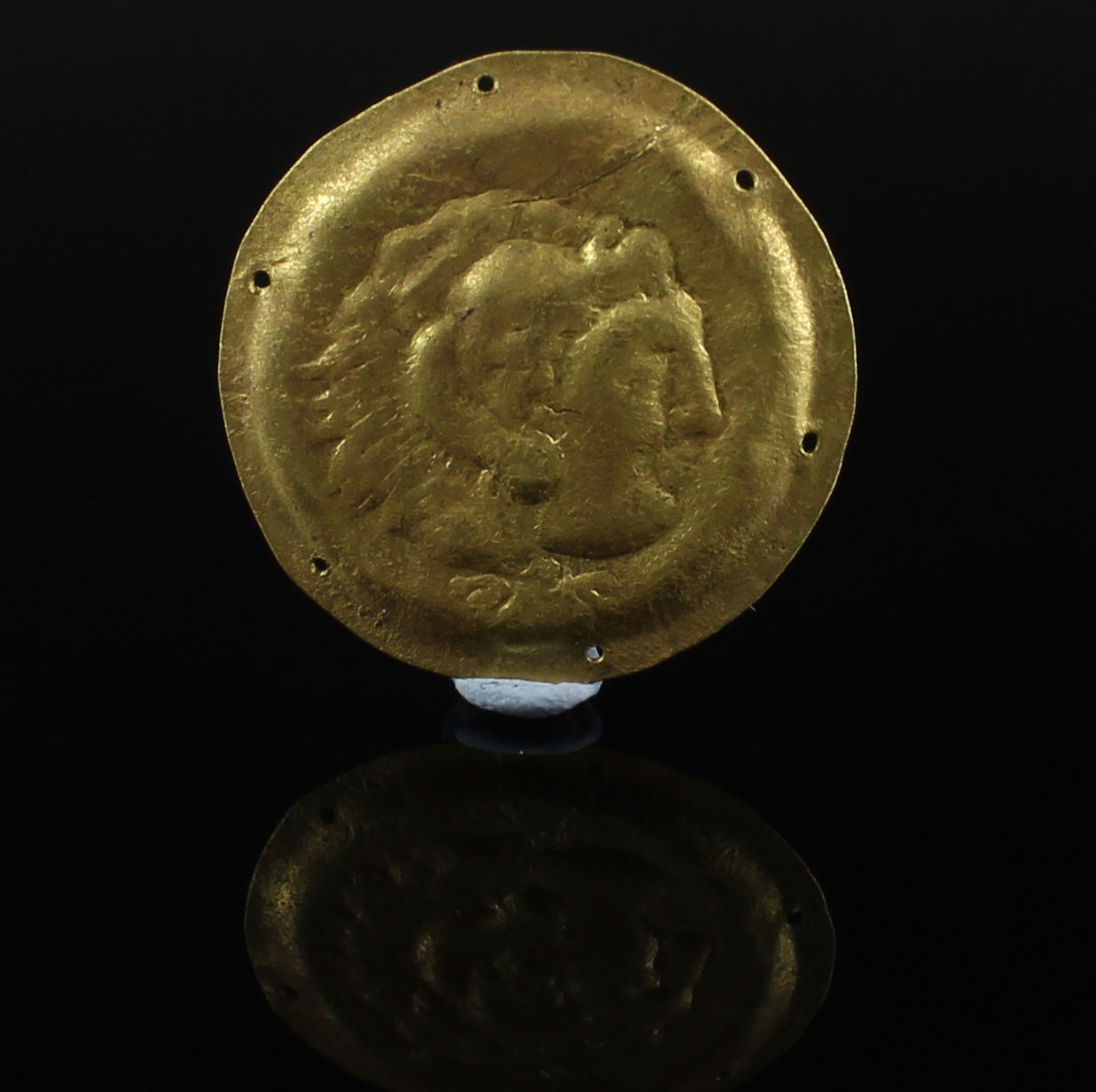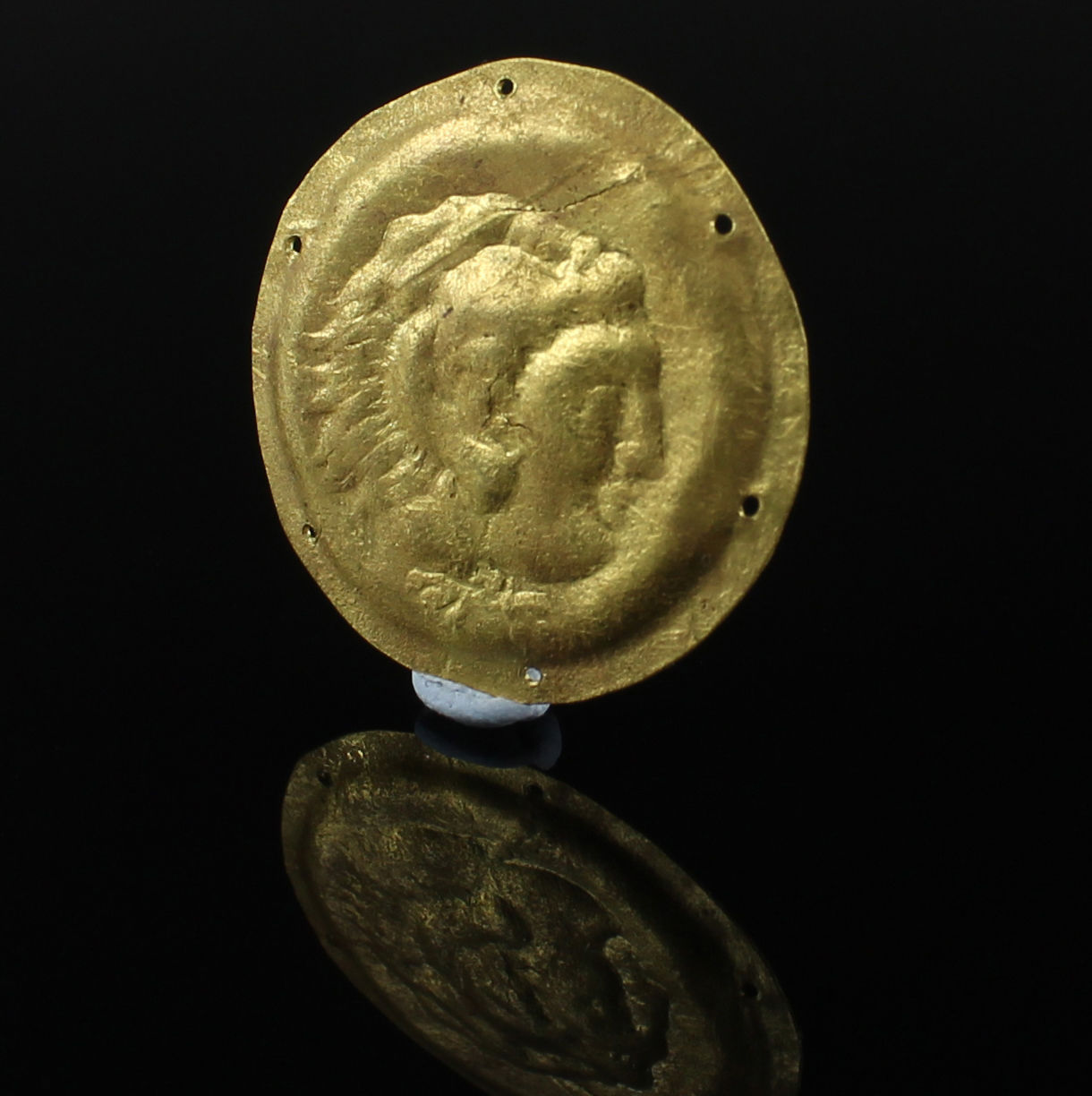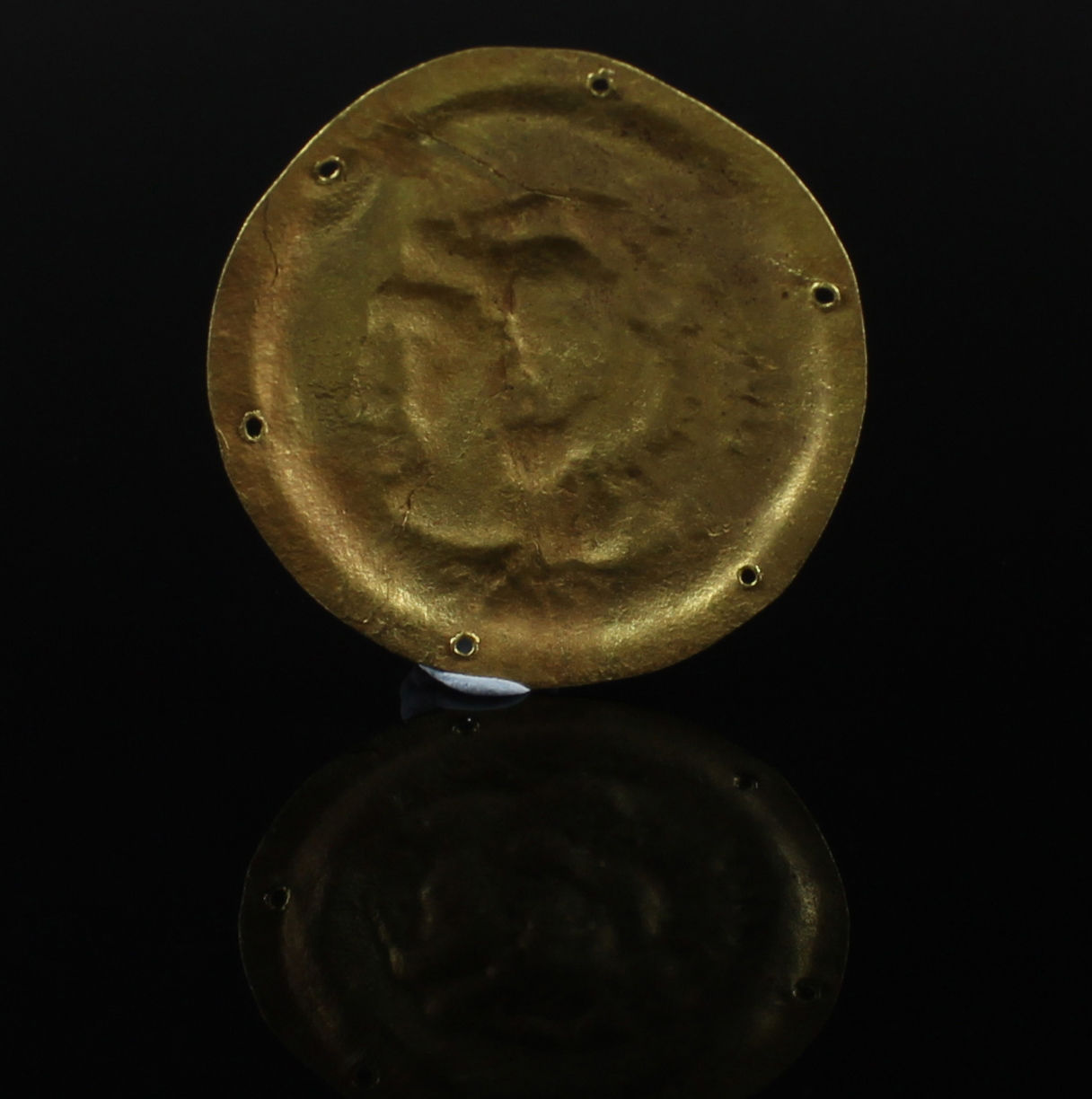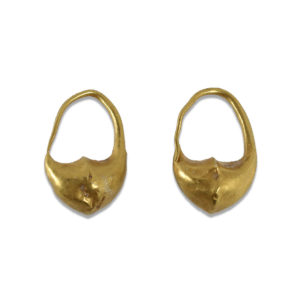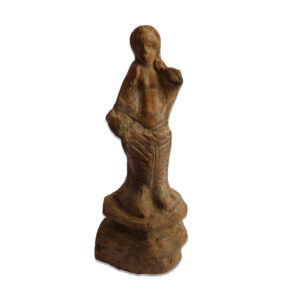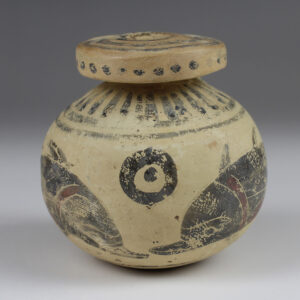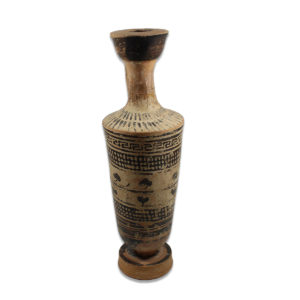Description
| ITEM | Sheet applique with portrait of Alexander the Great as young Heracles, repoussé technique |
| MATERIAL | Gold |
| CULTURE | Greek, Hellenistic |
| PERIOD | 3rd – 1st Century B.C |
| DIMENSIONS | 24 mm diameter, 1,4 gr |
| CONDITION | Good condition |
| PROVENANCE | Ex American private collection, purchased from a US antiquities dealer (1999) |
Alexander III of Macedon, commonly known as Alexander the Great, was a king of the ancient Greek kingdom of Macedon. A member of the Argead dynasty, he was born in Pella—a city in Ancient Greece—in 356 BC. He succeeded his father King Philip II to the throne at the age of 20, and spent most of his ruling years conducting a lengthy military campaign throughout Western Asia and Northeastern Africa. By the age of thirty, he had created one of the largest empires in history, stretching from Greece to northwestern India. He was undefeated in battle and is widely considered to be one of history’s greatest and most successful military commanders.
Alexander on a mosaic from Pompeii, an alleged reproduction of a Philoxenus of Eretria or Apelles’ painting, 4th century BC. During his youth, Alexander was tutored by Aristotle until the age of 16. His father Philip was assassinated in 336 BC at the wedding of Cleopatra of Macedon, Alexander’s sister, and Alexander assumed the throne of the Kingdom of Macedon. In 335 BC he campaigned in the Balkans, reasserting control over Thrace and Illyria before sacking the Greek city of Thebes. Alexander was then awarded the generalship of Greece. He used his authority to launch his father’s pan-Hellenic project, assuming leadership over all the Greeks in their conquest of Persia.
In 334 BC he invaded the Achaemenid Empire (Persian Empire) and began a series of campaigns that lasted 10 years. Following his conquest of Asia Minor (modern-day Turkey), Alexander broke the power of Persia in a series of decisive battles, including those at Issus and Gaugamela. He subsequently overthrew King Darius III and conquered the Achaemenid Empire in its entirety. At that point, his empire stretched from the Adriatic Sea to the Indus River. Alexander endeavored to reach the “ends of the world and the Great Outer Sea” and invaded India in 326 BC, achieving an important victory over King Porus at the Battle of the Hydaspes. He eventually turned back at the Beas River due to the demand of his homesick troops, dying in 323 BC in Babylon, the city he planned to establish as his capital. He did not manage to execute a series of planned campaigns that would have begun with an invasion of Arabia. In the years following his death, a series of civil wars tore his empire apart.


